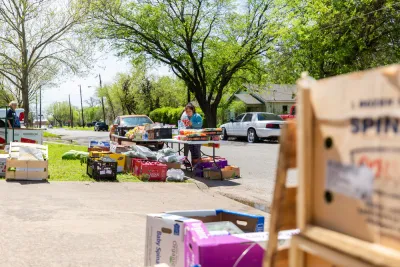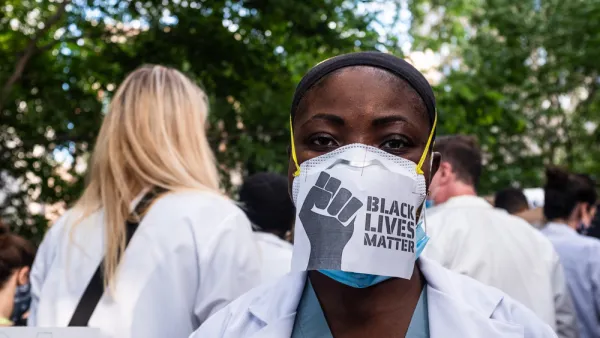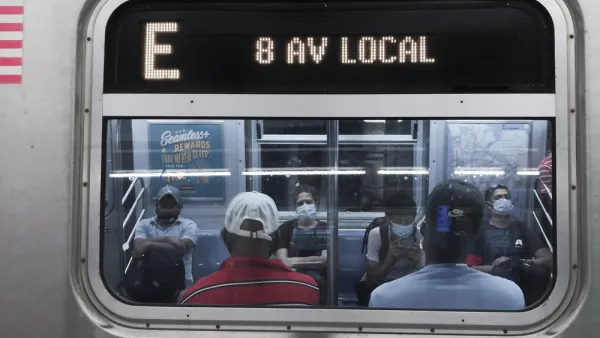What would a crisis response that finally overcomes the history of slavery and structural racism in the United States look like?

The effects of the coronavirus have not been equal across race and class lines—in public health outcomes as well as economic outcomes. Perhaps more than ever before, the consequences of structural racism are on full display every single day in the United States, as more people of color lose their jobs and their lives at a higher rate than the general population in every corner of the country.
Stephen F. Gray, assistant professor of urban design at the Harvard Graduate School of Design and a founder of the Boston-based design firm Grayscale Collaborative, writes an opinion piece for Next City on how planners, designers, and policymakers can use those lessons to fight for intentionally antiracist policy agendas.
History hasn't been enough to divert from the status quo, according to Gray.
Though the COVID crisis has put the lethal legacy of slavery on full display, the CDC only recently started collecting and disaggregating data by race. Their slowness to act decisively is either from political embarrassment, willful ignorance, or ambivalence to the immediate and life-saving significance of this information, and so when the US President and many in his political party push to reopen the economy prematurely, we shouldn’t be surprised. Once again, economic concerns in this country are taking priority over public health concerns and human life, as they often do when black and brown people are involved.
So now, more than ever, is the time to take action, according to Gray, "to ensure that a post-COVID-19 recovery benefits both sides of the color-line and that we as a nation truly begin to address the structural roots of racial inequality."
Gray has some specific recommendations for achieving that kind of ambitious change. Ideas include, with a lot more detail provided in the source article, specific recommendations for housing policy, economic development, and the public domain.
FULL STORY: COVID-19 Puts Structural Racism On Full Display — Will We Finally Do Something to Correct It?

Analysis: Cybertruck Fatality Rate Far Exceeds That of Ford Pinto
The Tesla Cybertruck was recalled seven times last year.

National Parks Layoffs Will Cause Communities to Lose Billions
Thousands of essential park workers were laid off this week, just before the busy spring break season.

Retro-silient?: America’s First “Eco-burb,” The Woodlands Turns 50
A master-planned community north of Houston offers lessons on green infrastructure and resilient design, but falls short of its founder’s lofty affordability and walkability goals.

Test News Post 1
This is a summary

Analysis: Cybertruck Fatality Rate Far Exceeds That of Ford Pinto
The Tesla Cybertruck was recalled seven times last year.

Test News Headline 46
Test for the image on the front page.
Urban Design for Planners 1: Software Tools
This six-course series explores essential urban design concepts using open source software and equips planners with the tools they need to participate fully in the urban design process.
Planning for Universal Design
Learn the tools for implementing Universal Design in planning regulations.
EMC Planning Group, Inc.
Planetizen
Planetizen
Mpact (formerly Rail~Volution)
Great Falls Development Authority, Inc.
HUDs Office of Policy Development and Research
NYU Wagner Graduate School of Public Service




























